User Ideas / Prospects
Comparative Analysis of Job Market Trends Across Mainstream Engineering Fields
1. Introduction
The engineering job market has undergone significant changes over the last five years, influenced by technological advancements, industry demand, and regional economic factors. This report provides a comparative analysis of job trends across key engineering disciplines globally and in India, backed by industry reports and expert analysis.
2. Overview of Engineering Fields Considered
Mechanical Engineering
Civil Engineering
Electrical Engineering
Electronics Engineering
Computer Science & Software Engineering
Chemical Engineering
Aerospace Engineering
3. Job Growth Trends (2019-2024)
Engineering FieldGlobal Job Growth (%)India Job Growth (%)Key Drivers
Mechanical +5% +6% Automation, Robotics, Renewable Energy (Source: World Economic Forum, Engineering Workforce Report 2023) Civil +3% +4% Urbanization, Smart Cities, Infrastructure Development (Source: India Infrastructure Report 2023) Electrical +4% +5% Power Grids, Renewable Energy, Electric Vehicles (EVs) (Source: International Energy Agency, Global Energy Outlook 2024) Electronics +2% +3% Consumer Electronics, Semiconductor Industry (Source: Semiconductor Industry Association 2023) Computer Science +12% +15% AI, Cloud Computing, Cybersecurity, Software Development (Source: Gartner IT Jobs Report 2024) Chemical +1% +2% Sustainable Materials, Green Chemistry, Pharmaceuticals (Source: Global Chemical Industry Report 2023) Aerospace +6% +7% Space Exploration, Defense, Private Aviation Growth (Source: NASA & ISRO Employment Reports 2023) 4. Key Findings & Comparative Analysis 4.1 Computer Science & Software Engineering
Highest Growth Rate due to demand in AI, ML, cybersecurity, and cloud technologies. (Source: McKinsey Digital Workforce Report 2024)
Remote Work Flexibility allows companies to hire globally, increasing competition.
India as an IT Hub has significantly contributed to its rapid job market expansion. (Source: NASSCOM India IT Jobs Report 2023)
4.2 Mechanical, Electrical, and Civil Engineering
Steady Growth but not as exponential as software fields. (Source: Bureau of Labor Statistics, Engineering Job Outlook 2024)
Automation & AI Integration is reshaping traditional roles.
Renewable Energy & EVs boosting opportunities in Electrical and Mechanical fields.
Smart Cities & Infrastructure Growth supporting Civil Engineering job demand. (Source: World Bank Infrastructure Investment Report 2023)
4.3 Electronics & Chemical Engineering
Slower Growth due to automation reducing manual design and manufacturing roles.
Semiconductor Industry Boom creating niche opportunities in Electronics. (Source: Semiconductor Industry Association 2023)
Sustainability Focus in Chemical Engineering opening new doors in green chemistry. (Source: Global Chemical Engineering Outlook 2024)
4.4 Aerospace Engineering
Stable to Growing Market with increased investments in private space exploration (SpaceX, ISRO, Blue Origin, etc.).
Defense & Commercial Aviation driving demand. (Source: Boeing & Airbus Industry Reports 2023)
5. Future Prospects & Emerging Trends
Interdisciplinary Skills: Engineers combining traditional skills with AI, IoT, and robotics will have a competitive edge. (Source: Harvard Business Review 2024)
Sustainability & Green Engineering: High demand in renewable energy, electric vehicles, and waste management.
Space & Defense Sector Expansion: Increasing aerospace engineering opportunities.
Upskilling & Reskilling: Engineers must adapt to digital transformations to remain relevant. (Source: LinkedIn Workforce Report 2023)
6. Conclusion
While Computer Science & Software Engineering leads in job market expansion, other engineering fields remain essential, with opportunities evolving due to technological shifts. Engineers who integrate software, automation, and sustainability into their expertise will have higher employability in the future.
Sources & References:
World Economic Forum, Engineering Workforce Report 2023
Bureau of Labor Statistics, Engineering Job Outlook 2024
NASSCOM India IT Jobs Report 2023
McKinsey Digital Workforce Report 2024
Semiconductor Industry Association 2023
Global Chemical Industry Report 2023
India Infrastructure Report 2023
International Energy Agency, Global Energy Outlook 2024
Boeing & Airbus Industry Reports 2023
NASA & ISRO Employment Reports 2023
Harvard Business Review 2024
LinkedIn Workforce Report 2023
This report provides a structured comparison of engineering job markets. Let me know if you need more detailed insights or additional data points!
.jpeg) One of the most Interesting field in India is Aerospace Engineering. It is responsible for aircraft, spacecraft, and advanced technologies. The necessity for qualified aerospace engineers is increasing, with rapid advancements being made. Nowadays, various sectors seek specialists in aerodynamics, propulsion and avionics.
One of the most Interesting field in India is Aerospace Engineering. It is responsible for aircraft, spacecraft, and advanced technologies. The necessity for qualified aerospace engineers is increasing, with rapid advancements being made. Nowadays, various sectors seek specialists in aerodynamics, propulsion and avionics.
We are Engineers Heaven, here to show students careers in aerospace engineering. These resources help aspiring engineers build a promising career in this area.
Why Aerospace Engineering ?
Aerospace engineering is a high-tech area which has tremendous opportunities. It unifies mechanical, electrical, and computer engineering. Those engineers build everything from aircraft and satellites to missiles and space exploration vehicles. The space programs of India have drawn interest from this sector. Hence, organizations like ISRO, DRDO provide a good career path.
Various private companies are also investing in aerospace. This translates to more job opportunities for recent graduates. This domain is a blessing for those who love advancement.
Aerospace Engineering Job Prospects
There are many career options for aerospace engineers in India. Roles abound in government and private sectors in research, design and manufacturing.
- Government Jobs
Some organizations that recruit aerospace engineers are ISRO, DRDO and HAL. They are stable and offer great career growth. Engineers are involved with advanced projects such as launching satellites and defense systems.
- Private Sector Opportunities
There are many private companies doing aerospace manufacturing. Companies such as Boeing, Airbus, and Tata Aerospace offer excellent employment opportunities. There are also startups now in space technology. Researchers work on satellites and rockets.
- Research and Development
There is exciting research in aerospace engineering. Engineers develop new aviation technology and ways to save on fuel. Research positions exist in academic institutions for innovators.
Higher Studies and Specialization
Most go now that they acquire masters in aerospace engineering. While you can pursue many different fields together such as aerodynamics, propulsion, or robotics, specialization will increase your career opportunities. Higher education also paves the way for international employment.
The Indian aerospace sector is speeding up. (GoI initiatives like “Make in India” promote local manufacturing.) And this creates aerospace Engineering jobs.
Role of ISRO and DRDO
ISRO has made the nation a leader in space research. It put satellites into orbit, visits deep space. All of them have come from DRDO, which is focused on defense technology and missile systems. These both have great company options for engineers for aerospace Engineering in India.
Private Sector Growth
Tata Advanced Systems and Mahindra Aerospace are among those companies growing rapidly. They produce aircraft parts and drones. More aerospace engineers have seen their jobs created.
Startups in Space Technology
Companies like Agnikula Cosmos and Skyroot Aerospace are leading the charge. They make low-cost launch vehicles and satellite technology. These companies also pose some fun career opportunities for new grads.
Essential Skills for Aerospace Engineers
Good problem-solving skills are essential for aerospace engineers. They need to demonstrate an understanding of physics, mathematics, and engineering principles. And here are some core skills:
Technical Knowledge: Knowledge of aerodynamics, propulsion, and materials.
- Data analysis and programming skills: for example knowledge software like MATLAB and CAD tools can be good for aerospace Engineering course.
- Innovation/Creativity: Creating new aircraft designs and technologies
- Collaboration and Team: Interacting with people from various domains.
Salary and Future Prospects
Switching gears, a background in aerospace engineering can lead to lucrative salary opportunities. So, there are steady, paid, benefits for government work. Despite the fact that private companies also employ many tax payers and their salaries are notoriously high, especially in R&D.
The starting packages for fresh graduates range from ₹6-10 lakh per annum. With experience, this can increase to ₹20 lakh a year or more. Another bonus about international opportunities is earning competitive pay.
Aerospace Engineering as a Career: All You Need to Know
The prospect of locking yourself in a room with your craft is daunting, and beginning a career in aerospace engineering needs a solid foundation. Here’s how you can begin:
- Select the Right Course – It is necessary to have completed a degree in aerospace engineering. Other Educational Institutes: - Other top institutes like IITs, NITs, and private universities also provide quality education.
- Practical Exposure – Students understand the real-world applications through internships. Projects help you to develop technical skills.
- Acquire Programming Skills — Learning languages like Python and MATLAB is very helpful.
- Stay Informed – It is imperative to keep up with the advancements when it comes to aerospace technology. Reading a lot of journals and research papers does help.
- Network with Professionals – Interacting with professionals can bring new possibilities.
We offer quality material to help students at Engineers Heaven. We assist students in identifying the suitable career path within aerospace engineering.
Conclusion
It is a rewarding field for the future generation of India. And growth is powered by government projects, private companies and startups. Every year the need for professional engineers is increasing a lot.
This is the pathway you want if you fantasize about working on cutting-edge airplanes or spaceflight. We at Engineers Heaven directs students for a professional career.
(Disclaimer: This statistics could be different in different part of World and Different timeline. this statistics has been generated based on data available till 2025 or relavant time span.)
how life would be impacted without engineers from various specialized fields
- Infrastructure: Civil engineers design, build, and maintain essential infrastructure like roads, bridges, dams, and buildings. Without them, our transportation networks would be rudimentary, buildings less safe, and urban planning chaotic.
- Water Resources: Civil engineers also handle water supply and sanitation systems. Without them, clean water would be scarce, and sanitation could be a major public health crisis.
- Urban Development: City planning and the development of sustainable communities would be hindered, leading to overcrowded and poorly organized living spaces.
- Machinery and Automation: Mechanical engineers design and develop machines used in industries, transport, and everyday life. Without them, there would be no cars, trains, or airplanes, and industrial processes would be inefficient and labor-intensive.
- Energy Systems: Mechanical engineers also work on power generation systems like turbines and engines. Without them, our ability to generate and efficiently use energy would be severely limited.
- Consumer Products: From home appliances to fitness equipment, many everyday items would be unavailable or far less effective.
- Power Generation and Distribution: Electrical engineers design and maintain the systems that generate and distribute electricity. Without them, we’d lack reliable power, leading to a return to pre-electricity lifestyles.
- Communication Systems: Electronics engineers develop the technology behind phones, computers, and the internet. Without their work, global communication would be nearly impossible.
- Automation and Control Systems: Modern factories and homes rely on automation for efficiency. Without these engineers, production and daily life would be far less efficient.
- Computing Devices: Computer engineers are behind the development of hardware and software that powers computers, smartphones, and other digital devices. Without them, we’d be without modern computing, crippling almost every industry.
- Networking and Internet: They also design the systems that make the internet possible. Without these, global connectivity and access to information would be severely restricted.
- Artificial Intelligence and Robotics: Advancements in AI and robotics, which are revolutionizing industries, wouldn’t exist without computer engineers.
- Pharmaceuticals: Chemical engineers are crucial in the production of medicines. Without them, the development and mass production of life-saving drugs would be impossible.
- Petroleum and Energy: They also work in refining petroleum and developing alternative energy sources. Without them, fuel would be less accessible, and energy innovation would stagnate.
- Food Processing: The food we eat often requires processing to be safe and palatable. Chemical engineers ensure that food products are safe, nutritious, and efficiently produced.
- Aviation: Aerospace engineers design and develop aircraft. Without them, air travel wouldn’t exist, drastically limiting global mobility.
- Space Exploration: They are also responsible for spacecraft and satellite technology. Without aerospace engineers, humanity’s exploration of space and our understanding of the universe would be non-existent.
- Defense: Many defense systems, including missiles and surveillance drones, rely on aerospace engineering. Without this expertise, national security could be compromised.
- Medical Devices: Biomedical engineers design and develop medical devices like pacemakers, MRI machines, and prosthetics. Without them, diagnosing and treating many conditions would be much harder or impossible.
- Tissue Engineering: Advances in tissue engineering and regenerative medicine are spearheaded by biomedical engineers. Without them, treatments that restore or replace damaged tissues wouldn’t be available.
- Healthcare Innovation: The continuous improvement of healthcare technologies, leading to better patient outcomes, depends heavily on biomedical engineers.
- Pollution Control: Environmental engineers develop systems to reduce pollution and manage waste. Without them, air, water, and soil contamination would be far worse, endangering human health and ecosystems.
- Sustainable Development: They also work on projects that aim to balance development with environmental protection. Without their expertise, sustainability efforts would falter, leading to resource depletion and ecological crises.
- Renewable Energy: Environmental engineers are key in developing and implementing renewable energy solutions, crucial for combating climate change. Without them, the transition away from fossil fuels would be significantly slower.
- Manufacturing Efficiency: Industrial engineers optimize production processes, ensuring that goods are made efficiently and cost-effectively. Without them, manufacturing would be slower, more expensive, and less reliable.
- Supply Chain Management: They also manage supply chains, ensuring that products are delivered on time and at the right cost. Without industrial engineers, logistics would be chaotic, leading to shortages and inefficiencies.
- Quality Control: Ensuring that products meet quality standards is another key role. Without industrial engineers, product defects would be more common, affecting safety and customer satisfaction.
- Advanced Materials: Materials engineers develop new materials with specific properties for various applications. Without them, innovations in electronics, construction, and healthcare (like biodegradable implants) would be impossible.
- Metallurgy: They also work on the extraction and processing of metals. Without them, we would lack the materials needed for building infrastructure, manufacturing tools, and producing electronics.
- Nanotechnology: Advancements in nanotechnology, leading to innovations in fields like medicine, electronics, and energy, are driven by materials engineers. Without them, many cutting-edge technologies would not exist.
- Farm Equipment: Agricultural engineers design and develop machinery used in farming. Without them, modern farming methods wouldn’t be possible, leading to less food production and higher food prices.
- Irrigation and Water Management: They also design systems for efficient water use in agriculture. Without these systems, crop yields would be lower, and water resources could be wasted.
- Sustainable Farming Practices: Agricultural engineers are involved in developing sustainable farming practices to ensure food security. Without them, agriculture would struggle to meet the demands of a growing population.
- Shipbuilding: Marine engineers design and maintain ships and submarines. Without them, maritime trade and naval defense would be greatly diminished.
- Offshore Engineering: They also work on offshore structures like oil rigs and wind farms. Without marine engineers, exploiting marine resources and developing offshore energy would be nearly impossible.
- Oceanographic Technology: Marine engineers contribute to technologies that explore and monitor the ocean. Without their work, our understanding and stewardship of marine environments would be limited.
- Soil and Rock Mechanics: Geotechnicalengineers study the behavior of earth materials. Without them, constructing stable foundations for buildings, bridges, and tunnels would be much riskier.
- Landslide and Earthquake Mitigation: They also develop solutions to mitigate landslides and earthquake impacts. Without geotechnical engineers, many areas would be unsafe for habitation.
- Mining Engineering: Extraction of minerals and resources from the earth is guided by geotechnical principles. Without these engineers, mining would be far less efficient and more dangerous.
Without engineers from these specialized faculties, the world would lack the technological advancements, infrastructure, and innovations that make modern life possible. Society would struggle with basic needs like shelter, transportation, healthcare, and communication, resulting in a world that is less safe, less connected, and less prosperous.
Recently there was huge innovation buzz from Taivan over Rocket Science and Engineering about Rocket propulsion Hybrid Engine. made by pair of scientist lets get some details what is it?
The Tsua-Ing hybrid rocket engine is an innovative propulsion system named after its inventors, Professor Tsai and Professor Ing from the National Cheng Kung University in Taiwan. This hybrid rocket engine represents a significant advancement in rocket propulsion technology, combining elements of both solid and liquid rocket engines to offer improved performance and safety. Here are some key aspects of the Tsua-Ing hybrid rocket engine:
Key Features of the Tsua-Ing Hybrid Rocket EngineHybrid Propulsion System:
- Solid Fuel: The rocket engine uses a solid propellant, which serves as the fuel. This is typically composed of materials that are stable and easy to handle.
- Liquid or Gaseous Oxidizer: The oxidizer is stored separately in a liquid or gaseous form, which is injected into the combustion chamber to react with the solid fuel.
Advantages of Hybrid Rockets:
- Safety: Hybrid rockets are generally safer than liquid rockets because the fuel and oxidizer are stored separately, reducing the risk of accidental explosions.
- Throttle Control: The engine's thrust can be adjusted by controlling the flow rate of the oxidizer, providing greater flexibility in propulsion.
- Restart Capability: Hybrid engines can be restarted multiple times during a mission, unlike traditional solid rocket engines which burn continuously until the fuel is exhausted.
Innovations by Tsua and Ing:
- Enhanced Performance: The Tsua-Ing hybrid rocket engine incorporates design improvements that enhance combustion efficiency and overall performance.
- Environmental Impact: This engine design aims to reduce the environmental impact of rocket launches by utilizing cleaner combustion processes and more environmentally friendly propellants.
Applications:
- Space Exploration: The Tsua-Ing hybrid rocket engine is suitable for launching satellites, scientific payloads, and other space missions.
- Educational and Research Purposes: Due to its safety and simplicity, it is also used in educational institutions and research labs to study rocket propulsion.
Technical Specifications:
- Fuel Composition: Specific details about the fuel composition and oxidizer used in the Tsua-Ing hybrid rocket engine may vary, but typically involve combinations optimized for high performance and safety.
- Thrust and Efficiency: The engine is designed to deliver high thrust while maintaining efficient fuel consumption and combustion.
The Tsua-Ing hybrid rocket engine is a noteworthy development in the field of rocket propulsion, offering a blend of solid and liquid rocket technologies to achieve a safer, more flexible, and environmentally friendly propulsion system. Its contributions to both practical space missions and educational research highlight its importance in advancing aerospace engineering.
Sustainability is a critical consideration across various fields of engineering due to the pressing need to balance development with environmental, economic, and social responsibilities. Here are several key areas of engineering where sustainability is a major focus:
- Sustainable Infrastructure: Designing and constructing buildings, bridges, roads, and other infrastructure to minimize environmental impact and maximize resource efficiency.
- Green Building: Implementing eco-friendly materials, energy-efficient systems, and sustainable construction practices.
- Water Management: Developing systems for efficient water use, wastewater treatment, and stormwater management to preserve water resources.
- Energy Efficiency: Designing machines and mechanical systems that use less energy and produce fewer emissions.
- Renewable Energy Technologies: Developing systems for wind, solar, hydro, and geothermal energy production.
- Sustainable Manufacturing: Creating manufacturing processes that reduce waste, use recycled materials, and minimize energy consumption.
- Energy Systems: Designing and improving the efficiency of electrical grids, renewable energy integration, and energy storage systems.
- Electronics Recycling: Developing methods to recycle electronic waste and reduce the environmental impact of electronic devices.
- Smart Grids: Implementing advanced grid technology to optimize electricity distribution and consumption.
- Green Chemistry: Designing chemical processes and products that reduce or eliminate hazardous substances.
- Sustainable Materials: Developing biodegradable and recyclable materials.
- Process Optimization: Improving industrial processes to use fewer resources and generate less waste.
- Pollution Control: Developing technologies and methods to reduce pollution and clean up contaminated environments.
- Waste Management: Designing systems for recycling, composting, and reducing landfill use.
- Resource Recovery: Creating processes to recover valuable resources from waste streams.
- Sustainable Transportation Systems: Designing and promoting public transportation, cycling, and pedestrian infrastructure.
- Electric and Hybrid Vehicles: Developing cleaner, more efficient vehicle technologies.
- Logistics Optimization: Improving supply chain and transportation logistics to reduce emissions and energy use.
- Energy-efficient Buildings: Designing buildings that minimize energy consumption through efficient HVAC systems, insulation, and passive solar design.
- Sustainable Urban Planning: Creating urban spaces that reduce environmental impact and improve quality of life.
- Renewable Energy Integration: Incorporating solar panels, wind turbines, and other renewable energy sources into building designs.
- Sustainable Materials: Developing new materials that are more environmentally friendly, such as biodegradable plastics and sustainable composites.
- Life Cycle Assessment: Evaluating the environmental impact of materials from production to disposal to promote sustainable choices.
- Recycling and Reuse: Innovating ways to recycle materials and extend their useful life.
- Sustainable Mining Practices: Developing methods to minimize environmental impact and restore ecosystems after mining operations.
- Resource Efficiency: Improving extraction techniques to use resources more efficiently and reduce waste.
- Environmental Impact Assessments: Conducting thorough assessments to understand and mitigate the impact of mining projects.
- Fuel Efficiency: Designing aircraft and spacecraft that use less fuel and produce fewer emissions.
- Sustainable Materials: Using lightweight, durable, and recyclable materials in aerospace design.
- Environmental Impact: Reducing the environmental impact of aerospace operations, including noise pollution and carbon emissions.
- Energy-efficient Computing: Developing software and systems that use less energy, such as optimizing algorithms and data centers.
- Sustainable IT Infrastructure: Designing data centers and IT infrastructure with reduced energy consumption and improved efficiency.
- Green Software Development: Creating software that promotes sustainable practices and reduces environmental impact.
In each of these areas, engineers are constantly exploring new ways to enhance sustainability, balancing technological advancement with the need to protect and preserve our environment for future generations.
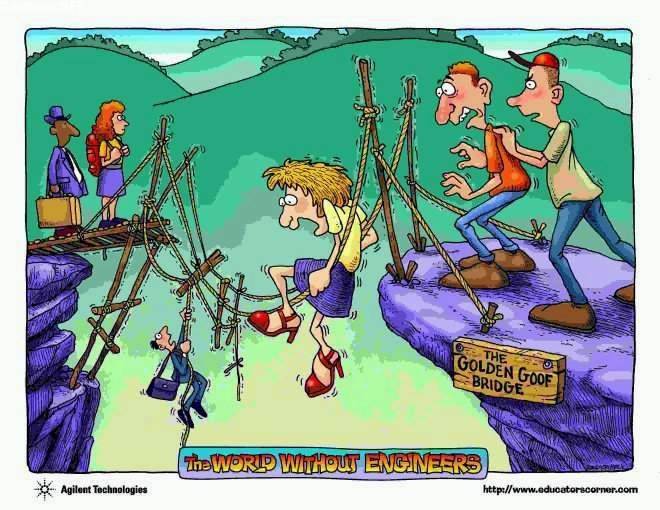
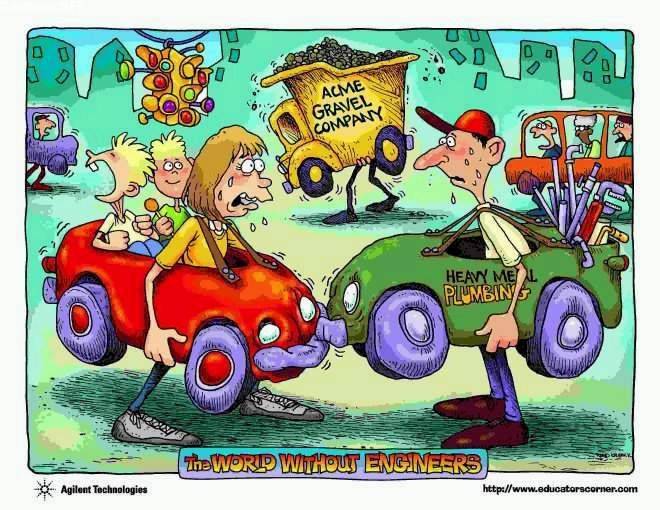
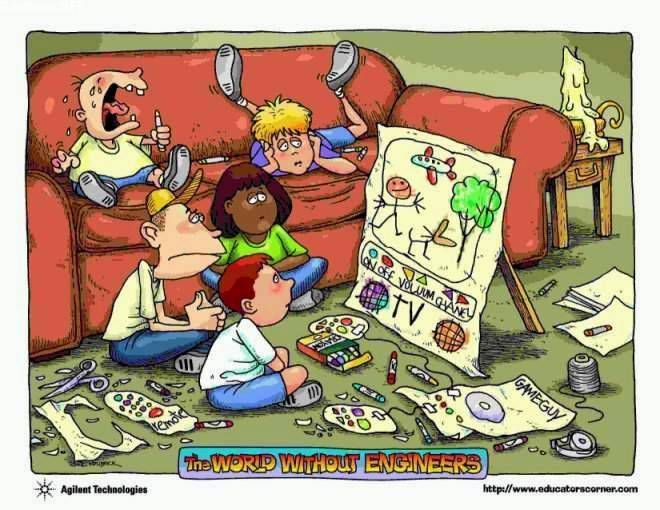
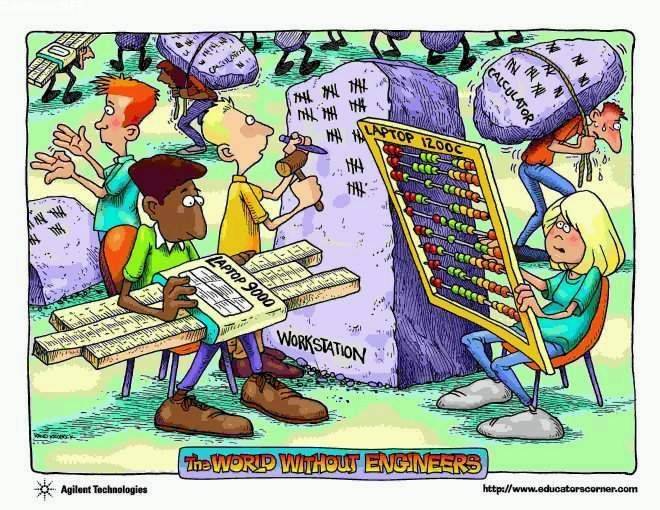
.jpeg)
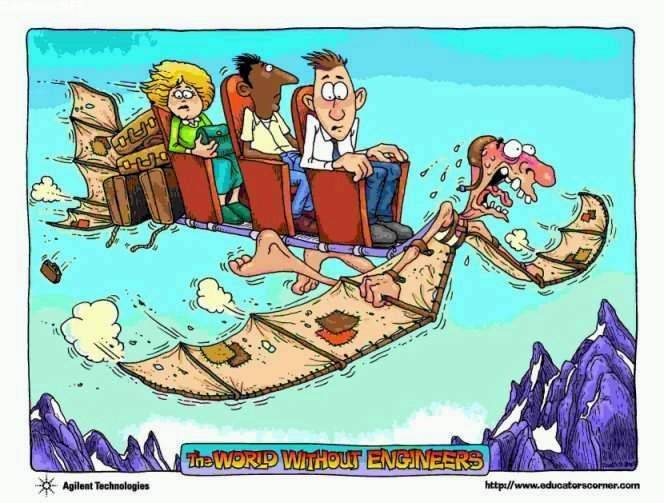
.jpeg)
.jpeg)
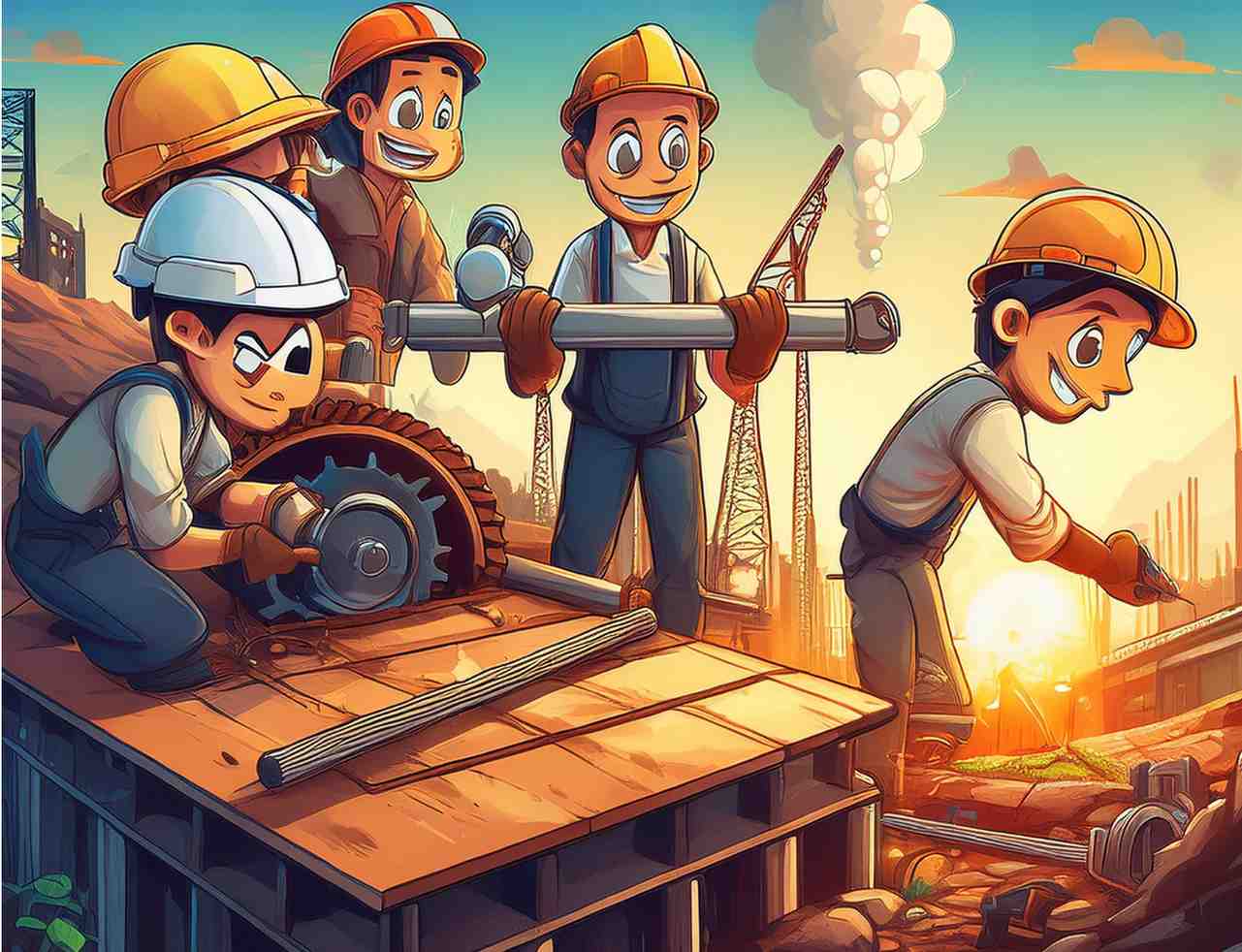
.jpeg)


.jpeg)
